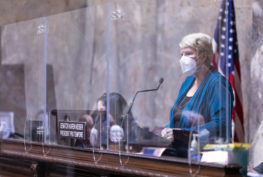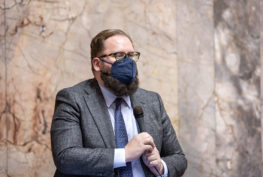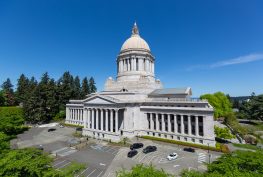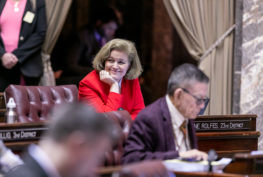SEATTLE — The bipartisan Senate Special Committee on Economic Recovery today released recommendations for rebuilding a post-pandemic economy that works for all Washingtonians.
“Washington’s economy has been stretched in unparalleled ways as the public health crisis began, leveled off, and then hit us again,” said Sen. David Frockt (D-Seattle), the committee’s chair. “To go from 3.8% unemployment to nearly 16% in a month, and then back down to our current rate, demonstrates how volatile this economic situation has been in the last 10 months.
“The pandemic recession has not hit all workers and groups equally. Our first steps toward a fairer and more equitable economy must be controlling the virus, providing relief where it is most needed, and getting small- and medium-sized businesses back on their feet. That’s the way to jump-start our economy, bring back good jobs, and help people take care of their families.”
The committee’s recommendations are based on more than 20 hours of testimony from more than 40 witnesses, experts and residents. The committee heard testimony from national and local economists and policymakers, including one past and one future member of the President’s Council of Economic Advisors.
The report recommends steps the state can take to provide immediate relief for people and families at risk of a housing, food, child care or job crisis, as well as for small businesses, especially in the hospitality and leisure sectors, which were hit particularly hard by the pandemic recession.
“There are literally dozens of recommendations in this report based upon the witnesses we heard from,” said Frockt. “To increase Washingtonians’ ability to participate in the workforce, there was bipartisan consensus that we must aggressively reduce barriers to widely available and affordable childcare and expand access to high-speed broadband internet to reach every corner and nook of the state in both urban and rural areas.”
The report also identifies reforms in aerospace, manufacturing and health care, which would pay longer-term dividends for Washingtonians.
“Finally, in this most partisan time, I am really pleased that the contributions to this report come from both the majority and minority members of the Senate spanning both parties,” Frockt continued. “We have to find ways to reach common ground and work together, recognizing that needs are great all over the state. We did not have to find ideological consensus in order to develop recommendations that we could all agree on. I appreciate greatly the contributions of the Democratic committee members on this report as well as Sen. Shelly Short of the minority caucus. She and I worked hard to find language and ideas that both sides could agree on. I hope that bodes well for follow-up legislation.”
The full report is available here, with the meeting agendas and presentation materials available as appendices.





